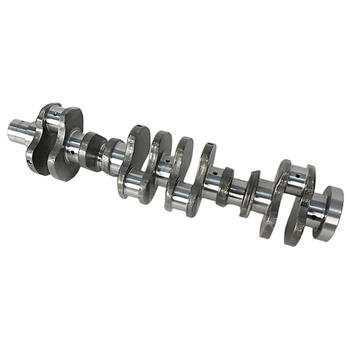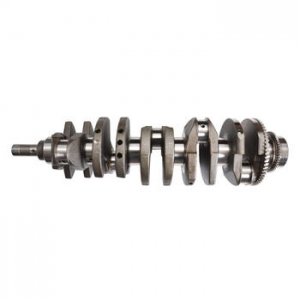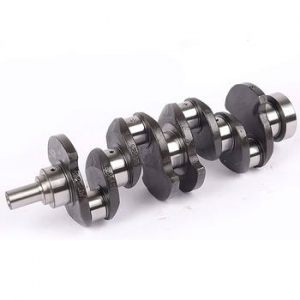Understanding the Role of Crankshafts in Your Toyota Engine
To be honest, the crankshaft is one of the most critical components in your Toyota engine. It's responsible for converting the linear motion of the pistons into rotational motion. Without a properly functioning crankshaft, your engine won't run smoothly or efficiently.
How Crankshafts Work
The crankshaft is a metal rod that is connected to the pistons through connecting rods. As the pistons move up and down, they cause the connecting rods to push on the crankshaft. This movement causes the crankshaft to rotate. The rotation of the crankshaft is then transmitted to the transmission, which turns the wheels of your vehicle.
Common Crankshaft Problems and How to Spot Them
Frankly speaking, crankshafts are built to last. However, they can still develop problems over time. Here are some of the most common issues you might encounter:
If you suspect that your crankshaft is damaged, it's essential to have it inspected by a professional as soon as possible. Ignoring the problem can lead to more severe engine damage, which can be expensive to repair.
Repairing or Replacing Your Toyota Crankshaft
When it comes to crankshaft repair, the first step is to determine the extent of the damage. In some cases, a simple bearing replacement might be all that's needed. However, if the crankshaft is cracked or bent, it may need to be replaced entirely.
Replacing a crankshaft is a complex and time-consuming process. It's not something that most DIYers can handle on their own. If you need to replace your crankshaft, it's best to take your vehicle to a reputable repair shop.
Maintaining Your Toyota Crankshaft
Regular maintenance is key to ensuring that your Toyota crankshaft stays in good condition. Here are some tips to help you keep your crankshaft running smoothly:
- Change your oil regularly. This helps to lubricate the crankshaft and keep it running smoothly.
- Check the crankshaft bearings for wear and tear. If they're starting to wear out, replace them before they cause further damage.
- Keep your engine properly tuned. This ensures that the crankshaft isn't working harder than it needs to, which can help to extend its lifespan.
Upgrading Your Toyota Crankshaft for Better Performance
If you're looking to improve your engine's performance, upgrading your crankshaft might be an option to consider. A high-performance crankshaft can provide several benefits, including:
- Increased horsepower and torque
- Improved engine response and acceleration
- Better durability and reliability
However, upgrading your crankshaft is not a decision to be taken lightly. It's a significant investment, and it may require other modifications to your engine to achieve the desired results. If you're considering upgrading your crankshaft, you should consult with a professional to determine whether it's the right choice for your vehicle.
FAQs About Toyota Crankshafts
Here are some frequently asked questions about Toyota crankshafts:
- Q: How often should I have my crankshaft inspected?
A: It's a good idea to have your crankshaft inspected every 60,000 to 100,000 miles. - Q: Can I replace my crankshaft myself?
A: While it's possible to replace a crankshaft yourself, it's a complex process that requires specialized tools and expertise. It's best to leave it to a professional. - Q: How much does it cost to replace a crankshaft?
A: The cost of replacing a crankshaft can vary depending on the make and model of your vehicle. On average, you can expect to pay between $1,000 and $3,000 for a replacement.
In my experience, taking good care of your Toyota crankshaft is absolutely necessary if you want to keep your engine running smoothly and efficiently. By following the tips outlined in this guide, you can help ensure that your crankshaft stays in good condition and continues to perform at its best for years to come.




